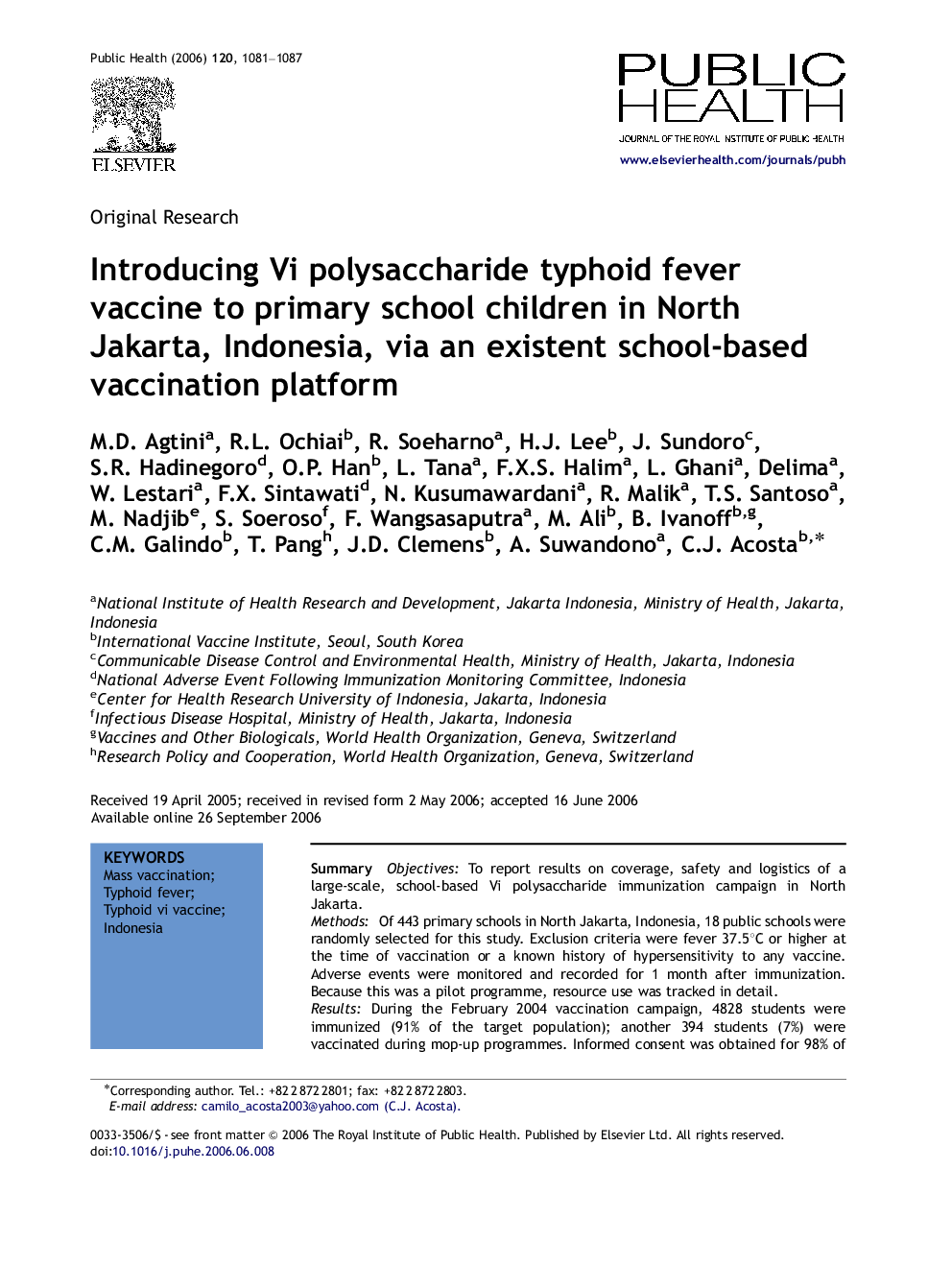| Article ID | Journal | Published Year | Pages | File Type |
|---|---|---|---|---|
| 1089106 | Public Health | 2006 | 7 Pages |
SummaryObjectivesTo report results on coverage, safety and logistics of a large-scale, school-based Vi polysaccharide immunization campaign in North Jakarta.MethodsOf 443 primary schools in North Jakarta, Indonesia, 18 public schools were randomly selected for this study. Exclusion criteria were fever 37.5°C or higher at the time of vaccination or a known history of hypersensitivity to any vaccine. Adverse events were monitored and recorded for 1 month after immunization. Because this was a pilot programme, resource use was tracked in detail.ResultsDuring the February 2004 vaccination campaign, 4828 students were immunized (91% of the target population); another 394 students (7%) were vaccinated during mop-up programmes. Informed consent was obtained for 98% of the target population. In all, 34 adverse events were reported, corresponding to seven events per 1000 doses injected; none was serious. The manufacturer recommended cold chain was maintained throughout the programme.ConclusionsThis demonstration project in two sub-districts of North Jakarta shows that a large-scale, school-based typhoid fever Vi polysaccharide vaccination campaign is logistically feasible, safe and minimally disruptive to regular school activities, when used in the context of an existing successful immunization platform. The project had high parental acceptance. Nonetheless, policy-relevant questions still need to be answered before implementing a widespread Vi polysaccharide vaccine programme in Indonesia.
